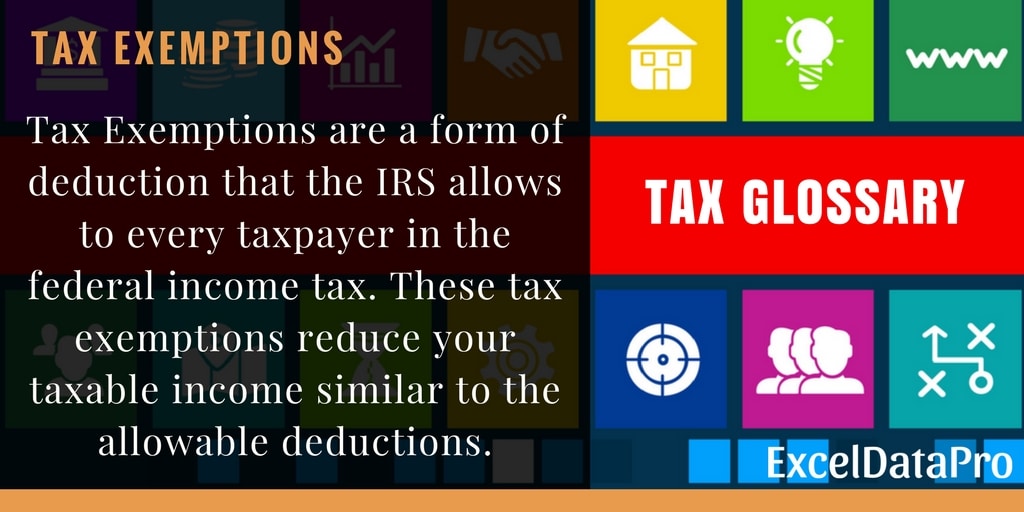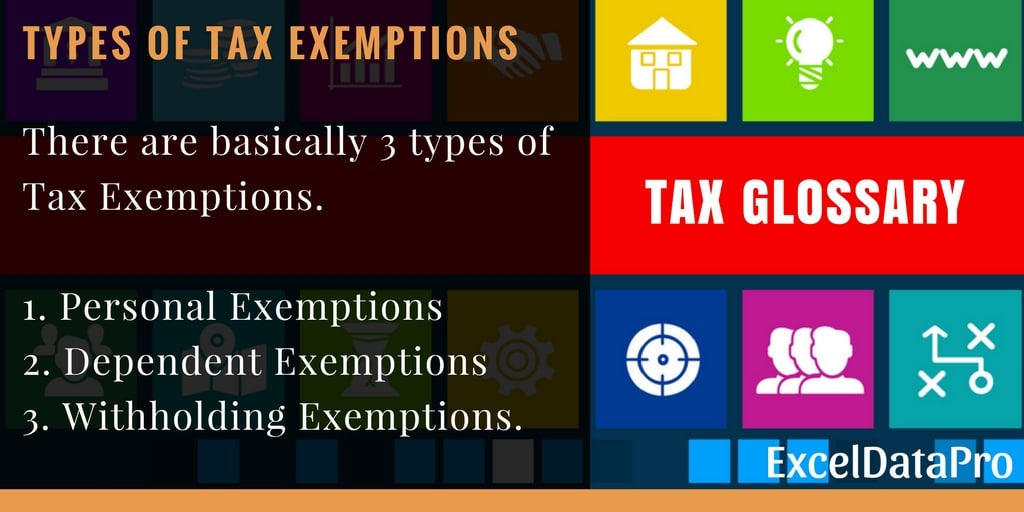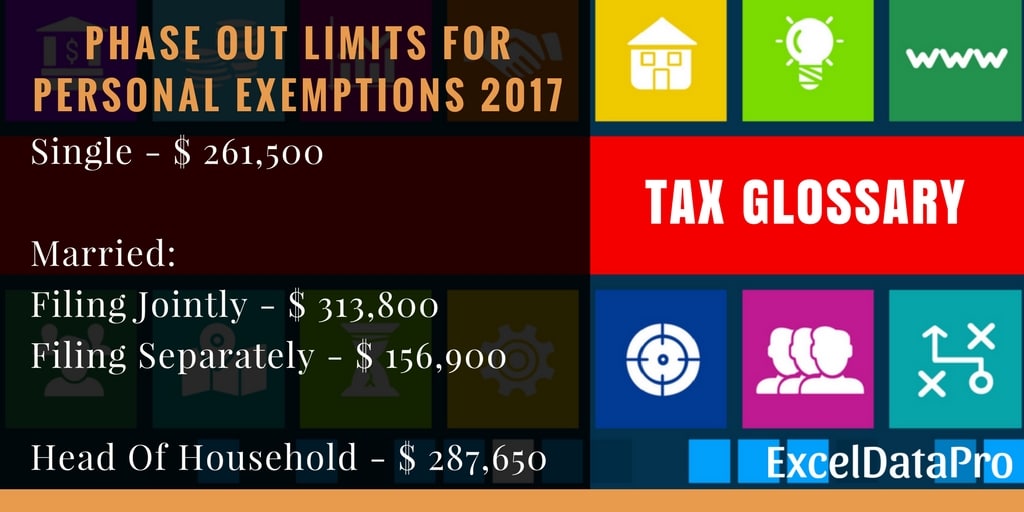
What are Tax Exemptions?
Tax Exemptions are a form of deduction that IRS allows to every taxpayer in the federal income tax. These tax exemptions reduce your taxable income similar to the allowable deductions.
Taxpayer often either don’t pay attention to these tax exemptions and tend to pay higher taxes. Knowing these exemptions will help you reduce your tax liability.
Tax exemption amount is fixed IRS every year adjusting the inflation. Every taxpayer is entitled to claim an exemption on their tax returns. The IRS has also defined phaseout limitation to these exemptions.
Charitable and religious organizations who operate as non-profit organizations are totally exempt from Federal income taxes. These organizations are liable to keep accurate records to maintain their exempt status.
Types of Tax Exemptions
There are basically 3 types of Tax Exemptions.
- Personal Exemptions
- Dependent Exemptions
- Withholding Exemptions.

1. Personal Exemptions
A personal exemption is a specific amount of money that a taxpayer can claim to deduct for himself every year in the federal income tax.
Single Filer can claim one personal exemption if he/she is claimed as a dependent on other taxpayer’s return.
If the taxpayer is married and is filing a joint tax return they are entitled to 2 personal exemptions. One for himself and one for his spouse.
The personal Exemption amount for 2017 is $4,050.
Phase out limits for personal exemptions for 2017 according to the filing status are as follows:
Single – $261,500.
Married, Filing Jointly – $313,800.
Married, Filing Separately – $156,900.
Head of Household – $287,650.

2. Dependent Exemptions
Dependent exemptions are those tax exemptions that IRS allows a taxpayer for each qualifying dependent.
Usually, the dependent exemption is for your children that live with you. The dependent child for whom you are claiming the exemption must be under 19 years or under 24 if he/she is a full-time student.
Another criterion for claiming the dependent exemption is that the children don’t provide more than half of their own financial support during the tax year.
Your parent living or not living with your and some of your relatives also qualify as your dependents.
3. Withholding Exemptions
According to IRS:
“If you claim exemption from withholding, your employer will not withhold federal income tax from your wages. The exemption applies only to income tax, not to Social Security or Medicare tax.”
Usually, employees get their salaries after deduction of income tax. The employers directly remit these taxes to IRS.
As a taxpayer, if you have no tax liability, you can claim an exemption from withholding.
In other words, your employer withholds the Medicare and social security contributions from your paycheck but does not withhold income tax.
You can download excel templates like Traditional IRA Calculator, Roth IRA Calculator, and Income Statement Projection for easy calculations.
We thank our readers for liking, sharing and following us on different social media platforms.
If you have any queries please share in the comment section below. I will be more than happy to assist you.
Leave a Reply